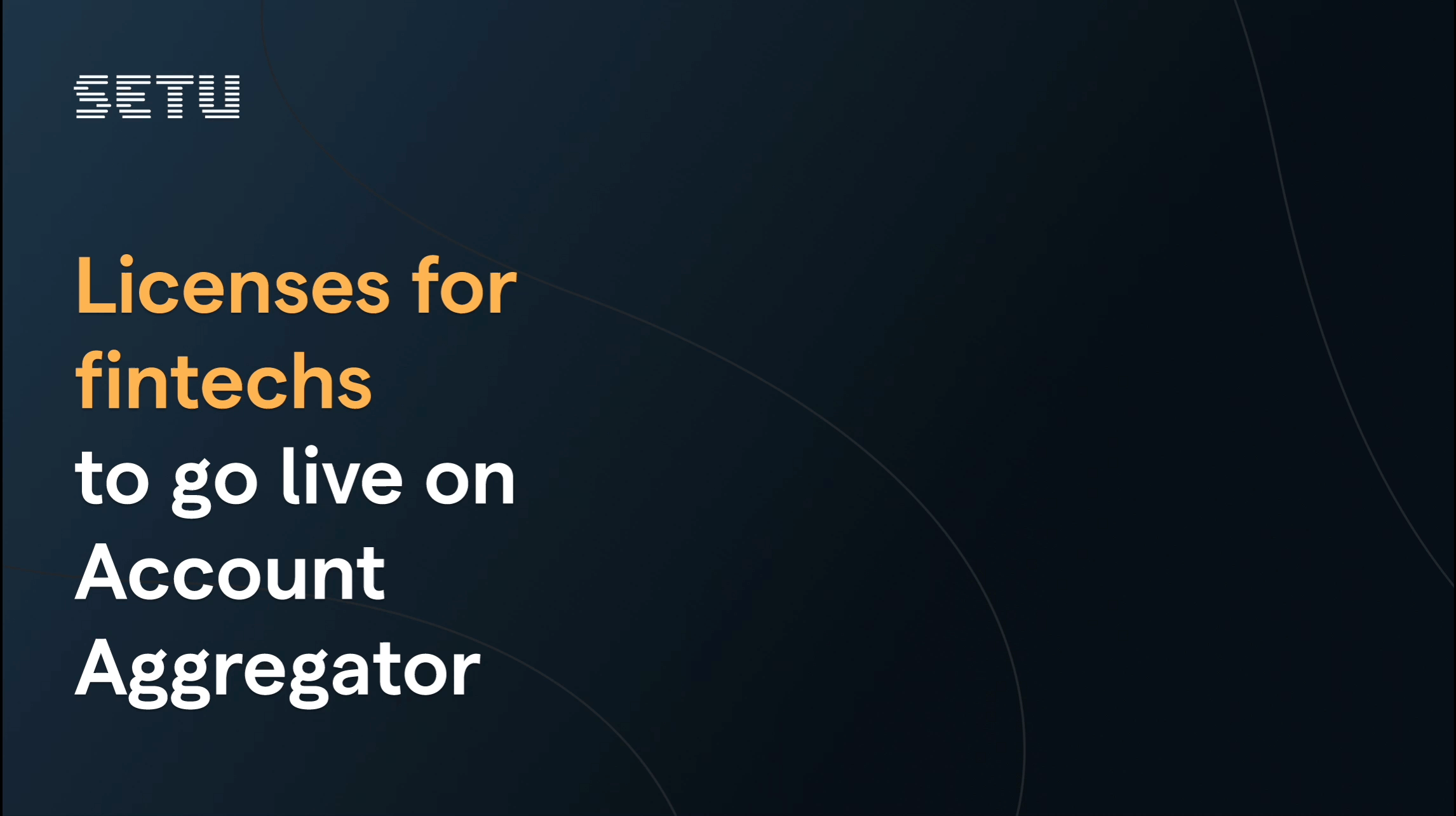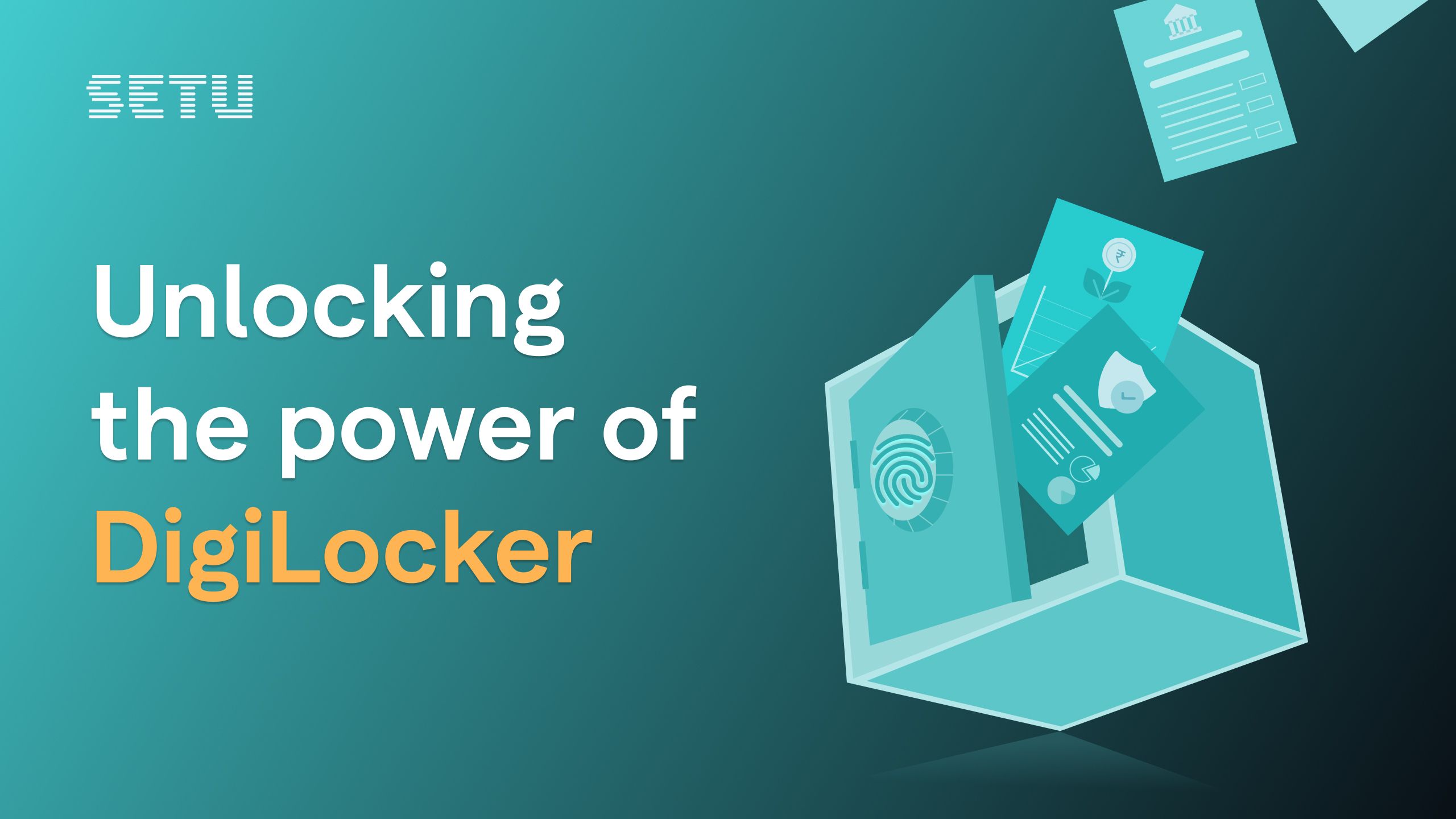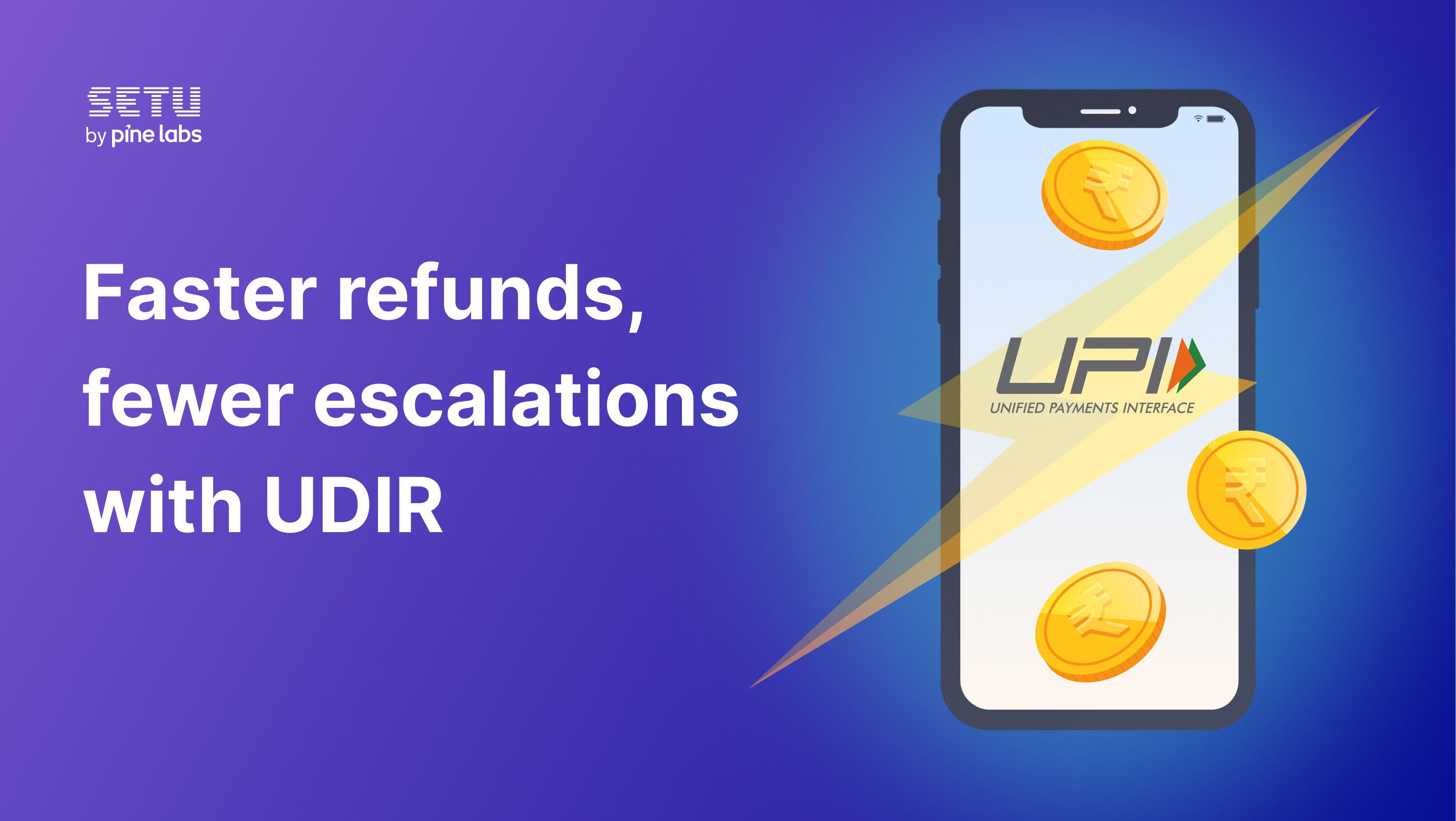
Nothing in life is certain but death and taxes.
This January, all of us must have received a reminder to file our taxes. We would have gone through our investments, insurance, and bank statements to track our financial data. Then, we would have realised the inevitable—our financial data is scattered across multiple entities—banks, mutual fund houses, insurance companies, and stock broking entities. Basically entities registered under various regulators like RBI, SEBI, IRDA, and PFRDA.
Pulling all the data together is nothing short of a mammoth task.
Even if we use a fintech app, it would need to know our financial transactions for the past few years. It would also need to study our debt obligations, risk capacity, and spending behavior. Even a simple act of filing taxes requires us to track our finances across multiple entities.
Well now this problem has been solved, thanks to Account Aggregators (AA). An RBI-licensed account aggregator will encrypt, compile and pass our financial data across different accounts such as bank accounts, insurance accounts, and mutual fund accounts from a Financial Information Provider (eg. an insurance company) to a Financial Information User (eg. a fintech app). The data will be shared between the FIP and FIU only when we provide explicit consent to share this data.
To participate in the AA ecosystem as an FIU or a FIP, fintech apps are expected to be regulated by any one of these financial service regulators—
-
Reserve Bank of India (RBI)
-
Securities Exchange Board of India (SEBI)
-
Insurance Regulatory and Development Authority (IRDA)
-
Pension Fund Regulatory Development Authority (PFRDA)
If you are building a fintech platform that provides financial services or advice, this blog would be useful for you. We will talk about 3 of the several licenses that can enable you to be a part of the AA ecosystem — Registered Investment Advisor, Retirement Advisor, and Insurance Agent.
1. Registered Investment Advisor
Who’s an RIA?
An RIA is a SEBI-registered investment advisor—a person or a company—who can give investment advice to individuals. As per their fiduciary duty, they are mandated to provide financial advice that’s in the best interest of the customer.
What do RIAs do?
Based on your finances, risk capacity, goals, and market conditions, RIAs prepare a financial plan for their investors. Life goals can include owning a home, investing for the education of kids, retirement planning, or estate planning. They charge a fee for this service. The fee typically consists of a variable and a fixed component. The variable component is based on a percentage of assets of the investors and fixed components include a flat fee.
In short, a registered investment advisor is an expert on financial markets and financial instruments. They are trained to assess the financial conditions of clients and recommend suitable investment plans.
An RIA (Registered Investment Advisor) is registered with the Securities and Exchange Board of India.
| Eligibility criteria | Details |
|---|---|
| Qualification and certification requirement | A professional qualification or a postgraduate degree in finance-related subjects OR Post graduate program from securities market in NISM or CFA certification |
| Work history | The applicant should have 5 years of experience in activities relating to advice in financial products or securities or fund or asset or portfolio management |
| Certifications | Certification on financial planning or fund or asset or portfolio management or investment advisory services from NISM OR from any other organization or institution including Financial Planning Standards Board of India or any recognized stock exchange in India provided such certification is accredited by NISM |
| Net Worth requirement | Individual investment advisors should have net tangible assets of value of not less than Rs. 5 lakh |
| Period of validity of certification | The certificate of registration will be valid till it is suspended or canceled by the board |
| Application fees | Rs. 2000/- |
| Application process (A) | To become a registered individual advisor, the persons has to furnish all details on the SEBI intermediary portal and make the payment |
| Turn around time (TAT) for SEBI to confirm application (interim step) | Within 7 to 10 days the applicant will receive a confirmation email from SEBI for the payment of fees along with receipt of login credentials. |
| Application process (B) | Here the applicant has to use the credentials to log in to the portal. The applicant needs to furnish all the details within 14 days after the login credentials were issued. The applicant also has to fill out Form A on the SEBI portal |
| TAT for SEBI to respond | Within one month of filing the application |
| Grant of registration certificate | SEBI sends the registration number and certificate by post to the address of the applicant. |
| Total TAT from application to obtaining certificate | Provided all details are complete and proper, the entire process can take up to 45-90 days. |
2. Registered Retirement Adviser
Who is a retirement advisor?
A retirement adviser is a person/ partnership firm/ body corporate/ registered trust who desires to engage in the activity of providing advice on the National Pension Scheme as well as other schemes regulated by PFRDA (Pension Fund Regulatory and Development Authority) to prospective subscribers. They are registered as retirement advisors under the PFRDA (Retirement Adviser) Regulations, 2016.
What does a retirement adviser do?
A registered retirement advisor provides awareness and facilitates onboarding onto the National Pension System or any other regulated pension scheme. They also provide advice on the necessity of old age income security, retirement planning, level of contributions they can make , having regard to their current and future potential income to achieve desired retirement objectives and other issues connected with taking these decisions and avoiding chances of mis-selling.
Eligibility criteria to obtain a PFRDA registered retirement adviser license
| Eligibility criteria | Details |
|---|---|
| Qualification and certification requirement | Applicant should have a graduate degree. Applicants will require a certification on retirement planning or retirement advisory services from an Institute accredited by PFRDA. |
| Security Deposit | 1. Security Deposit for Retirement Advisers who are individuals - Rs. 5,000/- 2. Security Deposit for Retirement Advisers who are corporate bodies - Rs. 1 lakh. The bank deposit/Guarantee shall be valid for a period of six months beyond the registration period. |
| Process of granting a certificate of registration | The Authority on being satisfied that the applicant complies with the requirements specified in the regulation sends intimation to the applicant on receipt of the payment of registration/renewal fees. |
| Validity of the certification | The certificate of registration is valid for a period of 3 years. |
| Fee structure for getting registered | Application fee - Rs. 500 Registration fee - Rs. 1000 |
<br />
3. Insurance Broker
Who is an insurance broker?
An insurance broker is a professional who acts as an intermediary between a consumer and an insurance company, helping the former find a policy that best suits their needs. Insurance brokers represent consumers, not insurance companies; therefore, they can’t bind coverage on behalf of the insurer.
There are five categories of insurance brokers which are
-
Direct Broker (Life)
-
Direct Broker (General)
-
Direct Broker (Life & General)
-
Reinsurance Broker
-
Composite Broker
What does an insurance broker do?
An insurance broker acts as an intermediary between you and an insurer. Armed with both your background and their insurance know-how, they can find a policy that best suits your needs for a reasonable price. The primary way that an insurance broker makes money is from commissions and fees earned on sold policies. These commissions are typically a percentage of the policy’s total annual premium. Eligibility criteria to obtain an IRDAI registered insurance broker license.
| Eligibility criteria | Details |
|---|---|
| Eligibility Criteria | 1. Company that is established under the Companies Act 2013 or the previous Company Law 1956; 2. A partnership that is registered under the Limited Liability Partnership Act, 2008; 3. A cooperative society which is registered under the Co-operative society act 1912; and 4. Any other individual or company that is allowed to conduct business related to an Insurance Broker. |
| Qualification | The applicant must ensure that at least two qualified persons are present who have the necessary training to function as insurance brokers. This is required to conduct the business of the insurance broker. If the applicant is carrying out an insurance broker business related to life insurance and general insurance, then the applicant has to make sure that the two qualified individuals have relevant and necessary qualifications in both life and general insurance. Go through the IRDA training for an insurance broker if you are the principal officer of your company. The same goes for anyone under employment that you hire to facilitate insurance services. |
| Documentation Required | To fulfill the requirements to become an insurance broker, ensure the following documents: 1. Certificate of incorporation of your company. 2. Memorandum of Association 3. Articles of Association. 4. Qualification documents of the Principal officer 5. Address proof of the premises of business. 6. Qualification documents of the employees of the insurance broking firm 7. Insurance Broker Exam Completion Certificate 8. Net worth certificate of the company 9. An audited balance sheet of the company |
| Capital Requirement | The applicant must satisfy the capital requirements for applying for a Broker’s License: 1. Direct Broker- 75 Lakhs. 2. Reinsurance Broker- 4 Crore. 3. Composite Broker-5 Crore. Also, the net-worth of an Insurance Broker shall at no time during the period of the certificate of registration fall below: rupees fifty lakh for direct broker; 50% of the minimum capital requirements or contribution or equivalent specified under Regulation 19(1) for reinsurance / composite broker. |
| Deposit Requirement | Every insurer (applicant) before the commencement of the insurance broker business must ensure that the deposit has been maintained with the scheduled bank. The sum which has to be deposited is as follows: 10 Lakh Rupees for a Direct Broker; and 10% of the minimum capital/ contribution is required for reinsurance / composite broker. Fixed deposit shall not be released to them without the prior written permission of the Authority. |
| Application Process | 1. Go to the official IRDA portal2. Select the Insurance Broker option 3. Start filling the application form 4. Upload the documents 5. Pay the insurance broker license fee 6. Submit the application. After receiving the request, the IRDA will assess the application form and documents and make the decision to approve. |
| Validity of License | The certificate of Insurance broker license is granted for three years from the date of issuance. An application for the renewal of registered insurance broker license is filed at least one month prior the expiry of these three years of registration. |
Apart from these 3, there are several other licenses that are valid for a fintech platform to go live on Account Aggregator. You can check them out here. It is important to note that the license that a fintech app is using must be directly correlated to the financial service business that they are in. For example—a wealth management platform that enables users to trade should pursue an RIA lincese or any other license from SEBI, and not say, an IRDAI license.
If you want to speak to us to learn more or just chat, write to us at aa@setu.co.





